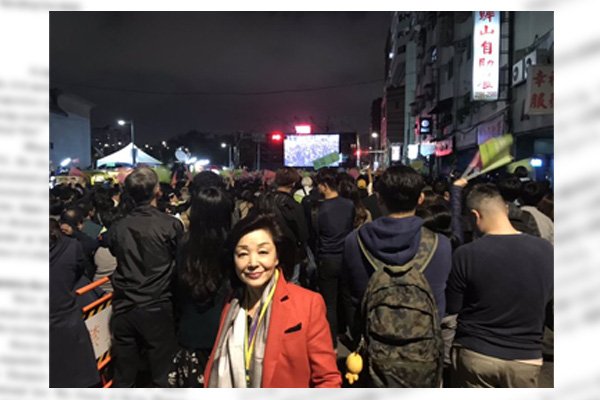It was a clear victory. On January 11, Taiwanese President Tsai Ingwen won a record 8.17 million votes or a vote of more than 57% for her reelection. Taiwan’s popular will totally rejected Chinese President Xi Jinping’s attempt to force China’s unification with Taiwan and “one country and two systems.”
One year ago on January 2, 2019, when Xi said the unification would be natural and should be realized, Tsai immediately spurned, saying that it is absolutely unacceptable. Taiwanese voters judged that Taiwan’s sovereignty could be protected only by Tsai not by the Kuomintang Nationalist Party. The biggest factors behind Tsai’s victory were Xi and the crackdown on protesters in Hong Kong.
U.S.-Taiwan relations deepening
Following Tsai’s victory, the U.S.-Taiwan relations will be further deepened. On the day after her victory, Tsai met with William Brent Christensen, director of the Taipei Main Office of the American Institute in Taiwan, equivalent to U.S. ambassador to Taiwan. Tsai asked the United States to provide more weapons and military technologies, making clear that she intends to beef up Taiwan’s defense capabilities. Washington had already decided to provide Taiwan with M1A2 Abrams battle tanks, surface-to-air missiles and F-16V sophisticated fighter aircraft. All these weapons are to be networked, constituting strong deterrence to China. China will have to be far more alert to U.S. military’s movements over Taiwan than under the Bush and Obama administrations.
As long as the Tsai government remains stable, the international community will continue to support Taiwan’s struggle led by her Democratic Progressive Party against China. So, we must pay attention to her domestic political skills.
While Tsai won a landslide victory in the presidential election, the Kuomintang boosted the number of its votes from 3.81 million in 2016 to 5.52 million this year. While the DPP’s vote gap with the Kuomintang came to 18 percentage points in the presidential election, such gap was only 5 points in the simultaneous Legislative Yuan election, indicating that voters are not necessarily satisfied with Tsai’s domestic policies.
One of the reasons for the dissatisfaction may be Tsai’s ideology-led liberal policies as indicated by the fact that Taiwan under her administration has become the first in Asia to tolerate same-sex marriages. The Tsai government is too liberal to be supported by farmers and workers that have traditionally backed the DPP. This is a challenge for Tsai at a time when Taiwanese are required to be united to stand against Chinese threat.
Maximum support for Tsai serves Japan’s interests
On the other hand, the Kuomintang is likely to further break up and weaken. The party consists of three groups – (1) high-ranking mainlander Taiwanese of the party’s Taipei headquarters, (2) party members belonging to local organizations and (3) some 2 million former soldiers who fled to Taiwan along with Chiang Kaishek and their families.
Chiang Kaishek as top leader of the first group seized assets left by Japan to control the second and third groups. These assets are now frozen and unavailable for any purpose. Kuomintang presidential candidate Han Kuoyu, the son of one of the former soldiers in the third group, got financial support from Hon Hai Precision Industry Co. owner Terry Gou to take control of the second and third groups without depending on financial resources at the Kuomintang headquarters. The Kuomintang has thus been broken up through the rebellion against authority.
If Tsai and her DPP can maintain stable government after winning majority seats in the Legislative Yuan, the Kuomintang may keep on declining. To serve its national interests, Japan as a democracy should quickly provide as much assistance as possible to Tsai and the DPP standing against China.
Yoshiko Sakurai is a freelance journalist and President of the Japan Institute for National Fundamentals.


